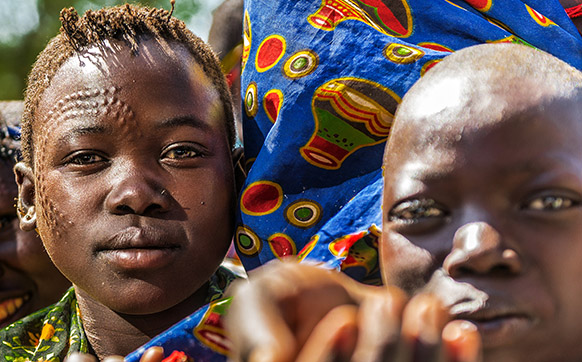- October 19, 2018
- Posted by: Administrator2
- Categories: Holiday, Latest News, Uganda News, Uganda safaris

The uniqueness of the people of Uganda.
Uganda also dubbed the pearl of Africa is popularly known for its vast variety of nature with most of the prolific and densely populated wildlife national parks, almost 11% of the world’s bird species making it a birders’ haven and half of the total mountain gorilla population.
Soaked by the waters of Nile River, Uganda is blessed with beautiful landscapes including one of Africa’s highest points; the Rwenzori Mountains, which are crossed by the equator but surprisingly covered by snow throughout the year.
However, these features are not only confined to Uganda, but you can also find them in any other African country. But there is that one thing about Uganda that is so unique and can’t be found anywhere except in the pearl of Africa, that’s her people; ranked number one in terms of their hospitality and friendliness.
Certainly, when Winston Churchill dubbed Uganda the pearl of Africa back then in 1908, he didn’t consider the people of Uganda, he shadowed them with her magnificence, variety of form, color, profusion of brilliant life, birds, insects and reptiles on a vast scale. But there is much more that a safari in Uganda can offer other than wildlife, and these are the people and cultures in Uganda.
Uganda is culturally blessed with over 50 different tribes and each with different norms and traditions. Each tribe speaks a unique dialect, different practices, dissimilar cuisines and totally different songs and dance. And all these tribes are located in the four regions of Uganda.
The central region is mainly dominated by the Bantu ethnic group and the Baganda in particular, a monarch with one of the best kingship documentations in Uganda. Buganda is noted for her unique ceremonies like the introduction, initiation of twins, king’s coronation and the funeral rites where they all perform different dances and songs.
About the central cuisines, Buganda’s staple food is Matooke and the cultural attire is a Kanzu for men and a Gomesi for women. These attires are the highest form of creativity Buganda has ever had.
The eastern region is also largely reigned by the Bantu speaking people including the Bagisu, Basoga, Bagwere, Basamia, and so many others; though it also has some Nilotics like the Iteso, Japadhola and others. All these tribes have different interesting cultural ceremonies with the most recommendable one being the Bagisu’s Imbalu.
In the northern region, there are the vibrant Acholi, Langi, Lugbara, Alur, and Kakwa among others. The Acholi and the Langi dominate the northern part, the Lugbara, Alur and the Madi dominate the west Nile region while the Karamajong reign in the north east, home of the magnificent Kidepo Valley National park.
Their staple food is majorly Akaro a combination of millet, cassava flour and sorghum, plus Amalakwang which is a sour vegetable prepared with ground nuts paste forming the typical northern food.
The western region has the Banyankole, Batooro, Banyoro, Bakonjo, Bakiga, Bafumbira and the Bachwezi, among others. The most common traditional dances performed on their ceremonies like okuhingira (introduction) are the Entogoro and Ekitaguriro featured with energetic stamping and tangling rhythms using the feet. The staple food here is the Eshabwe comprising of ghee skimmed from milk. In the southwest corner, you find the ancient Batwa pygmies living in the jungles of Bwindi impenetrable forest.
A cultural safari in Uganda gives you a chance to have a bite on most of the varied traditional foods and beverages. Attend one of the traditional ceremonies and join a cultural dance or folk song, visit the spiritual healers, buy yourself a hand crafted souvenir to take home, or perhaps have a two nights’ home stay to experience the typical Ugandan lifestyle. Indeed Uganda is simply more than the mountain gorillas and other wildlife; it also home of beautiful people and vibrant culture.
2 Comments
Leave a Reply
You must be logged in to post a comment.

[…] we are to successfully bring up a loving and caring culture in Uganda, it must give chance to each diverse human gift to find its place in life. One that doesn’t […]
[…] Community development is one of the volunteering opportunities in Uganda. It is done in form of Education, teaching the locals how to write and read. The volunteer must teach the English language in classes, arrange the lesson plans, and among others. This opportunity allows the volunteers to interact with the locals hence learning the cultures of Uganda. […]